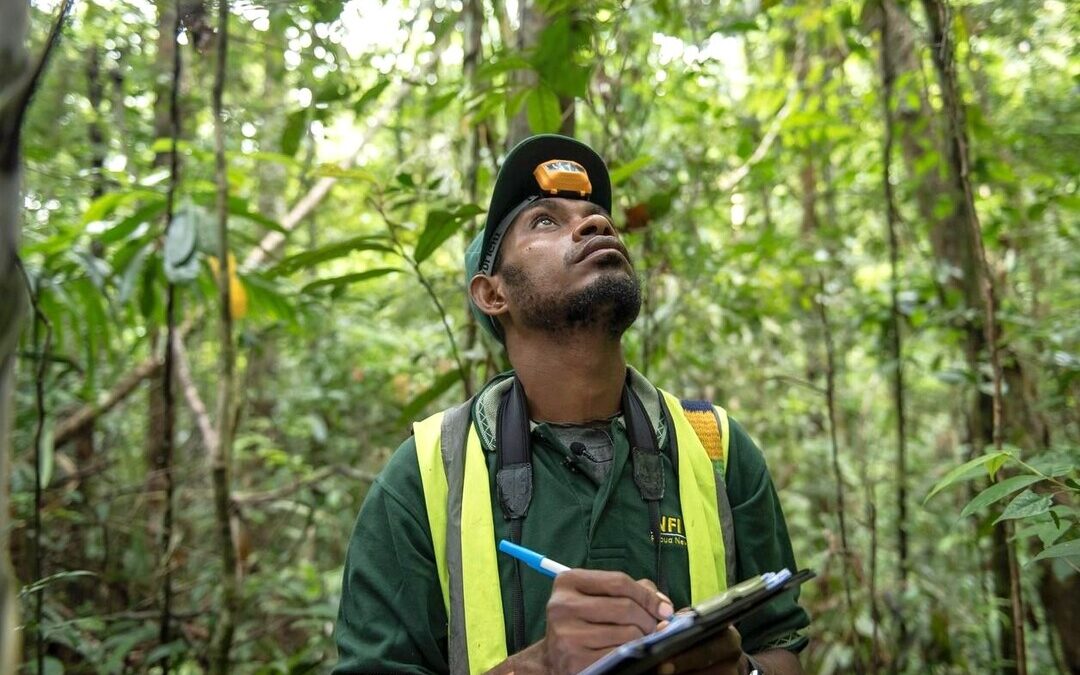Study Finds Third-Party Audits Fail to Guarantee Carbon Offset Credibility
Widespread bias in third-party audits undermines trust in carbon offsets, warns new study from leading climate experts.
Only 16 percent of carbon offset credits issued to date represent actual emissions reductions, a new study warns, raising serious doubts about the integrity of voluntary carbon markets and the effectiveness of third-party auditing, the system meant to safeguard them.
The report, “Third-Party Auditing Cannot Guarantee Carbon Offset Credibility,” co-authored by Cary Coglianese of the University of Pennsylvania Carey Law School and Cynthia Giles, a former top enforcement official at the U.S. Environmental Protection Agency, argues that third-party auditors often enable, rather than prevent, systemic over-crediting in global carbon markets.
“The entire offset system rests on a foundation that cannot deliver what it promises,” Coglianese said. “Auditors are structurally biased to approve flawed projects because their business depends on it.”
Auditors and Carbon Offset Markets
Carbon offset markets rely on a network of developers, auditors, registries and credit purchasers. Project developers claim to reduce or avoid emissions through activities such as forest preservation, clean cookstoves or renewable energy.
Third-party auditors, chosen and paid by the developers themselves, are tasked with verifying these claims before registries issue tradable carbon credits.
Auditors must evaluate whether projects meet loosely defined criteria, such as “additionality” — meaning the project wouldn’t have occurred without the credit — “permanence,” where the emissions reductions are long-lasting and “leakage,” where emissions aren’t simply shifted to another location.
These concepts are largely unmeasurable and rely heavily on assumptions provided by developers.
The Credibility Crisis in Carbon Offset Markets
Despite widespread use of third-party auditing, reports of exaggerated or false offset claims have proliferated.
One study found that just 10 percent of credits from tropical forest conservation projects under the Verra registry actually reflected avoided deforestation. Another analysis of cookstove initiatives revealed that projects were awarded more than ten times the credits they actually deserved.
More broadly, a synthesis of one-fifth of all issued credits found fewer than 16 percent represented genuine emission reductions. Ratings firms BeZero Carbon and Calyx Global placed only 7.8 percent and 11 percent of projects, respectively, in their highest credibility tiers.
The voluntary market has also spilled into compliance schemes. California’s forest-based offset credits were found to provide almost no real climate benefit, while Australia’s offset system was recently declared a failure in a global context.
Third-Party Auditor (In)Dependence
Coglianese and Giles contend that the underlying problem is economic dependency and self-serving bias.
“In today’s market, project developers select and pay the auditors who evaluate their work,” the report states. “This creates strong incentives for auditors to support developers’ assumptions, regardless of their accuracy.”
Experimental studies in India showed that auditors paid by clients underreport pollution by as much as 70 percent. In financial settings, auditors tasked with reviewing identical data reached favorable conclusions when told their employer was the client in question.
In the carbon markets, the effects are similar. The report found that 64 percent of Verra’s certified auditors conducted work on 95 projects that were later suspended, rejected, or found to be over-credited in peer-reviewed studies, suggesting widespread, not isolated, failure.
Auditing and Carbon Credit Integrity
Auditing often rubber-stamps questionable assumptions. In a review of forest offset projects, the Berkeley Carbon Trading Project found that developers understated fire and disaster risks by 90 percent, yet auditors approved the assessments.
In one case, an auditor signed off on a zero fire-risk score even after personally witnessing fires across the project site.
“The auditors are not just missing the mark — they are enabling over-crediting,” Giles said.
Despite registry claims that auditors ensure “real and permanent” emission reductions, the authors argue that auditors’ actual role is more narrowly procedural, focused on checking compliance with methodology, not verifying climate impact.
Conclusion
As carbon offset markets expand to cover international aviation and corporate supply chains, the risks of poor oversight are rising. Both regulatory and voluntary markets largely depend on the same flawed auditing structures, the report notes.
“Research and experience confirm that third-party auditors selected and paid by project developers cannot guarantee offset credibility,” Coglianese said.
Efforts by registries and oversight bodies, such as the Integrity Council for the Voluntary Carbon Market, have focused on refining methodologies but have left the auditor-developer relationship largely intact.
Without deeper reforms — including structural independence, real-time monitoring, or centralized audit assignment — the authors conclude that carbon offsets are likely to continue falling short of their climate promises.
Nirmal Menon
Related posts
Subscribe
Error: Contact form not found.


